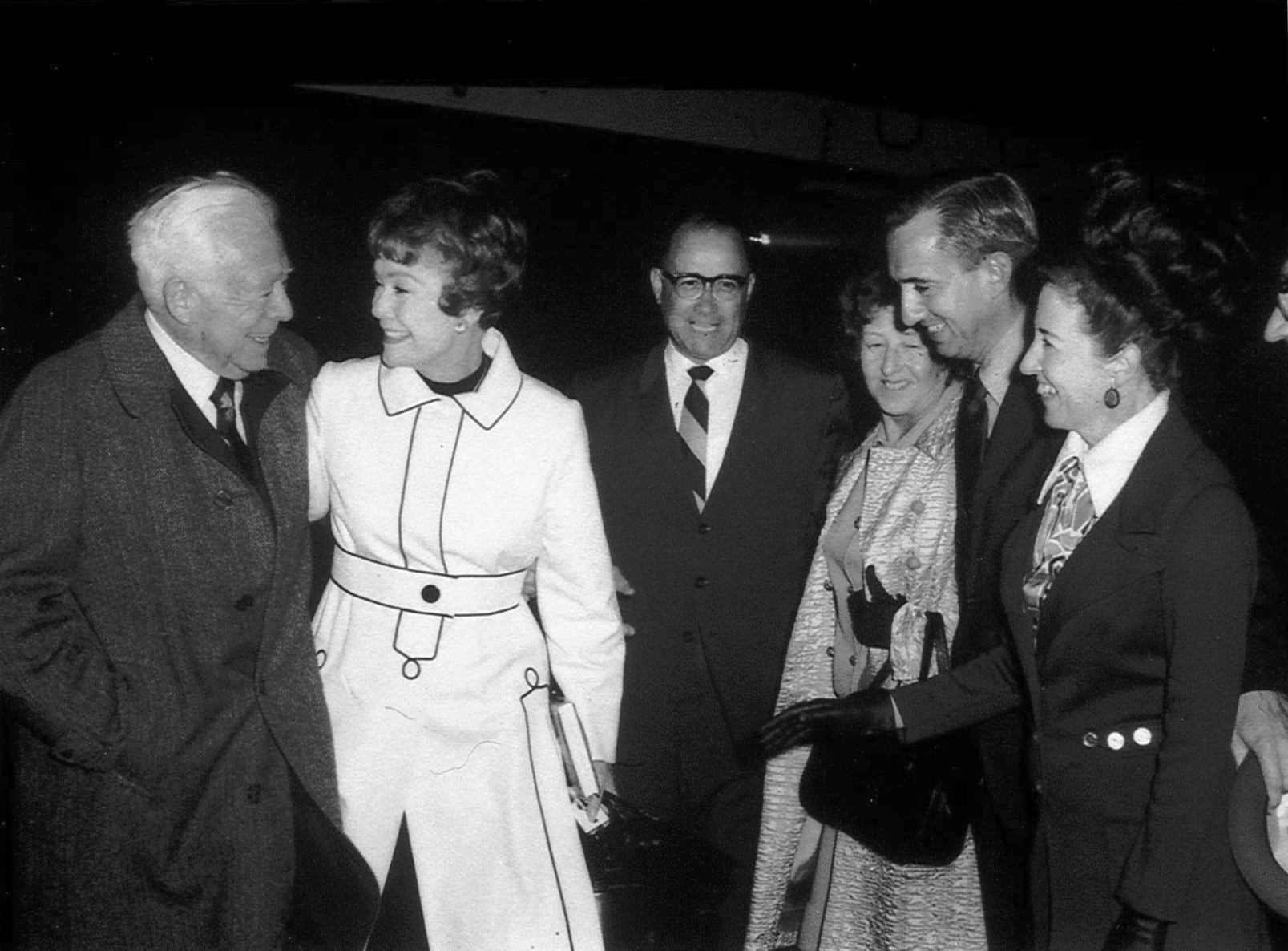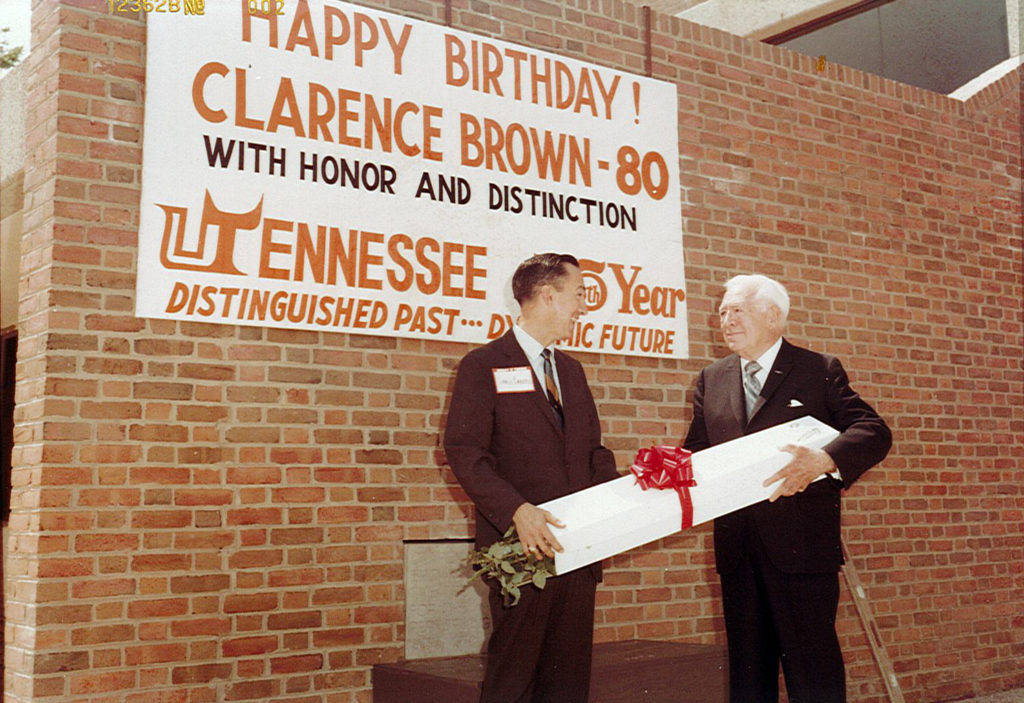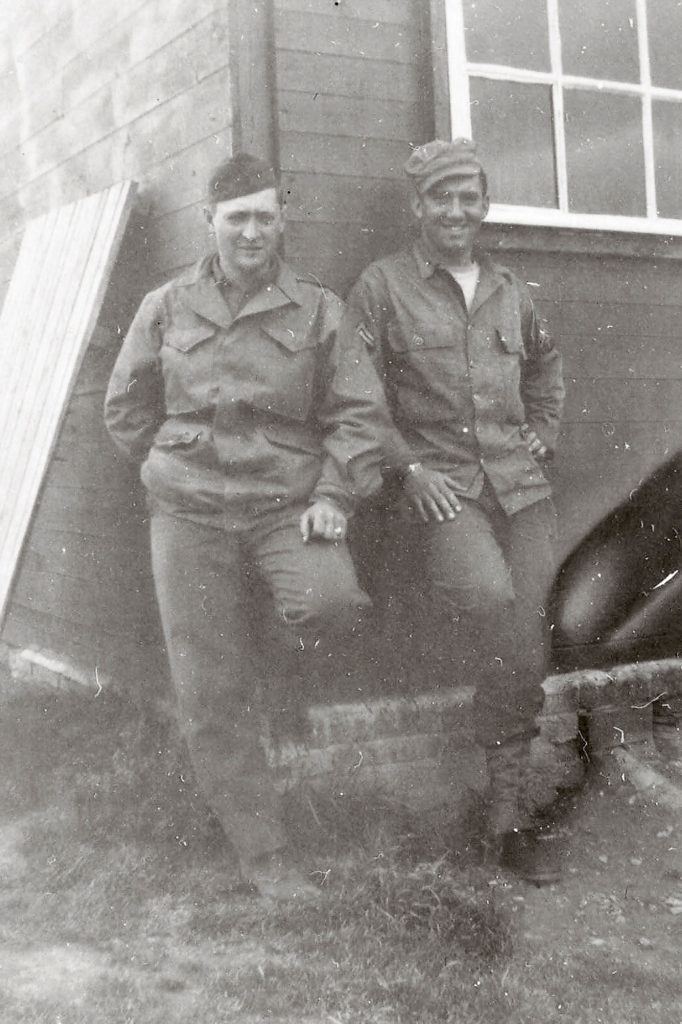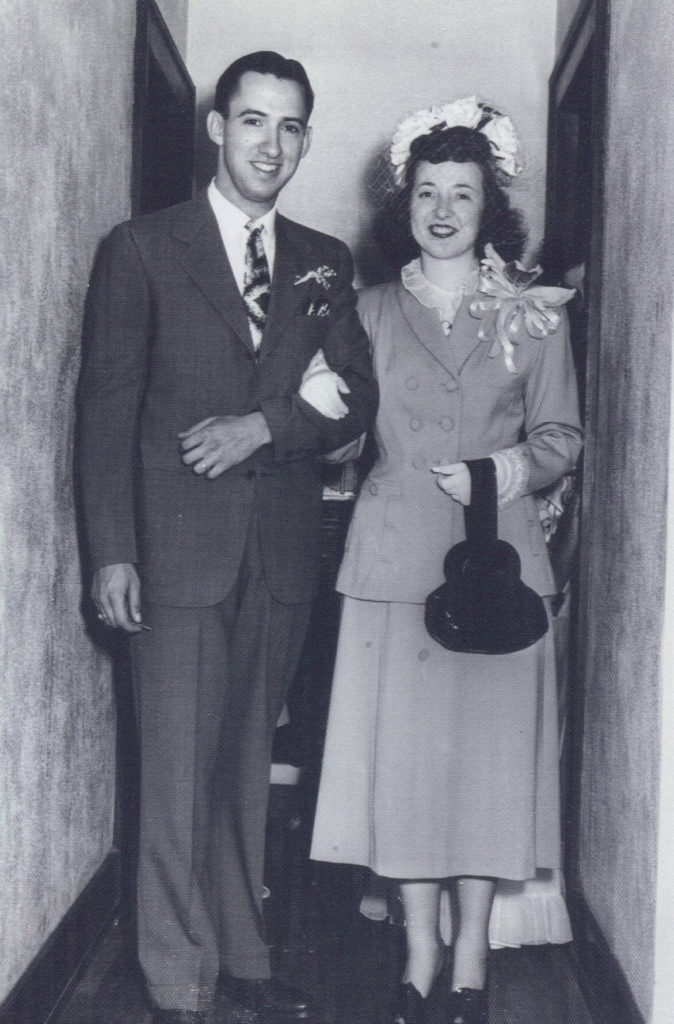Everyone who knew Charlie Brakebill (’48) knows that he would have wanted a story about his 34-year career at UT to start in 1967 when he and future UT president Ed Boling first met with MGM director Clarence Brown in the Century Plaza Hotel in Hollywood.
Brown, a 1910 UT engineering graduate, had retired after a remarkable career, directing more than 50 movies over 30 years. He was Greta Garbo’s favorite director, starting in the silent film-era and including her iconic first onscreen words in Anna Christie (1930), “Gimme a whisky, ginger ale on the side, and don’t be stingy, baby.” Brown earned one of his five Oscar nominations for that film and two more for directing Elizabeth Taylor and Mickey Rooney in National Velvet (1944) and The Yearling (1946). In all, Brown directed Joan Crawford six times and Garbo seven.
Brakebill, who was director of gifts and grants, and Boling, who was vice president for development and alumni affairs, were hoping to get Brown’s support in creating a new theatre at UT. They quickly learned that Brown’s passion was to establish a theatre in which student actors, directors, and designers could learn by working alongside professionals. At first, Brown said it wasn’t the right time for him to make a commitment, but after some persuasion from his wife, Marian, he made the gift of $50,000 that established the Clarence Brown Theatre and committed another $500,000 to enable its construction.

Over the course of months and years, Brakebill and his wife, Joyce, talked with Brown and Marian about the legacy Brown wanted to leave, and they became special friends. Brown described the dedication of the Clarence Brown Theatre as one of the greatest moments of his life. “As long as I’m alive,” he pledged at the grand opening, “I’m going to do as much as I can to help the theatre program grow.”
Brown made many gifts to his namesake theatre over the next 20 years. Then, in part as a result of their continuing friendship with the Brakebills, the Browns decided to leave half their estate to UT. (The other half went to the Motion Picture and Television Fund Country Home for retired actors.) Clarence Brown died in 1987 and Marian in 1991. Their estate gift of $12 million—at the time the largest gift ever bestowed to a UT program—created an endowment that put the Clarence Brown Theatre and the UT theatre program in elite company nationally—one of only 13 League of Regional Theatres on college campuses around the country. As just one measure, the MFA acting program is today ranked 11th in the world, in the company of names like Yale, Juilliard, and NYU.
The Brakebills and their children, Larry and Linda, loved watching the Clarence Brown Theatre thrive and prosper over the decades. Well into his late 90s, Brakebill would raise his hand at meetings of the Clarence Brown Theatre Advisory Board to note with pride that, in his view, the theatre had never been stronger, artistically, in its management, and in its support from the community. “Especially for our newer members,” he would add, “I always want us to keep in mind just how much we owe to the vision and generosity of Clarence and Marian Brown.”
The Clarence Brown Theatre was only one of the many improvements that, thanks to the generosity of donors like the Browns, the team of Brakebill and presidents Andy Holt, Boling, and Joe Johnson Jr. brought to UT. But the CBT was the apple of his eye. “My father loved the Clarence Brown Theatre with all his heart and soul,” says Brakebill’s son Larry, a physician and a member of the CBT Advisory Board. “Every production, every meeting of the Advisory Board, every special event brought him joy.”
From Monroe County to Omaha Beach
Brakebill, born October 7, 1924, in Madisonville, Tennessee, grew up on his family’s farm in Monroe County. He graduated as salutatorian of Madisonville High School in May 1942, entering UT’s College of Agriculture in June. He was sworn into the US Army in the ROTC department in Neyland Stadium in December 1942, called to duty in April 1943, and ordered to report to Fort Oglethorpe in Georgia. On the way, he stopped in Chattanooga to ride the Incline Railway to the top of Lookout Mountain. At the top, he met another UT student-turned-soldier, Ed Boling. The two new friends looked out over seven states and wondered what the future would hold.
As fate had it, they both trained at Fort McClellan in Alabama, several times sharing KP and guard duty together. They ran into each other again at Camp Claiborne in Louisiana in the summer of 1944. That September, Corporal Brakebill’s engineering utilities detachment and Boling’s parts supply unit were both among the 9,000 troops who sailed from Boston to Liverpool, England, on the USS Wakefield. Former heavyweight champ Jack Dempsey, a fitness officer who refereed Coast Guard boxing matches, was also aboard.
Three months after D Day, Brakebill and Boling were on the same ship that took them across the English Channel. “I walked up that hill at Omaha Beach,” said Brakebill, “and the first thing I saw was something I would never forget: a cemetery with 15,000 newly made graves.” His unit was assigned to Rennes, France, the capital of Brittany, to help rebuild the city and guard German POWs.
One day in 1944 his unit was replacing a roof in a bombed out building when they saw a family struggling to pull a piano up two stories and through French doors in a small apartment building. He and several buddies hoisted the piano into the apartment. Brakebill stayed and chatted with the Guillard family and met their daughter Anthelmette, a pharmacy student who spoke English. “For six or seven months, I saw her family regularly,” Brakebill remembered. He and Anthelmette took long walks and sat on a special bench as they developed a “deep friendship bordering on the romantic,” as he described it. When it was time to ship out in June, Brakebill decided to end the relationship, based mostly on both needing to finish their respective degrees. They wrote for a while but slipped out of touch, and both married other people.
With help from his colleague Jack Williams, now vice president of development and alumni affairs emeritus, Brakebill reconnected with the Guillard family in 2013, visited Anthelmette’s grave and children, and worked with Williams on the book The Piano Love Affair, which became a short film, written by MFA acting graduate Steve Sherman and directed by Gabe McCauley.
A Postwar Swirl and the Air National Guard
Brakebill returned to the United States in July 1945, and in a postwar swirl of events in 1948, he was awarded his degree in agricultural education, received a commission from UT’s Air Force ROTC program, joined the 134th Air National Guard Unit, based at McGhee Tyson Airport, and on June 5 married Joyce Droke of Memphis, with Ed Boling as best man. The couple moved to Loudon, Tennessee, where Brakebill taught vocational agriculture and Joyce worked as a secretary at Loudon High School.
Brakebill was called to active duty for two years during the Korean War. On his return he became sales manager for Bacon’s Creamery in Loudon until 1961, when he was once again called to active duty, this time to Ramstein Air Force Base in Kaiserslautern, Germany, during the Berlin Crisis.
When he returned home in 1962, UT President Andy Holt, and Boling, then vice president of development and alumni affairs, persuaded Brakebill to start UT’s development program as director of gifts and grants. He retired from the Air Force National Guard as a lieutenant colonel in 1967. Over the years at UT, Brakebill ascended to assistant vice president for development, senior associate vice president for development, and vice president of development and alumni affairs.
A Remarkable Career
When Brakebill retired in 1996, UT’s profile of private giving had changed dramatically. From just a few thousand dollars in 1961, gifts had increased to $56 million annually in 1996. The endowment had grown from about $1 million to more than $210 million.
“UT has one of the most successful fund-raising programs of any public university in the country,” said Johnson, “and Charlie Brakebill is a major reason why. He has been an indispensable figure for most of the years the university has had a development program and has had a big role in the remarkable accomplishments it has achieved. Much of our success in raising private gifts is the result of his dedication, effectiveness, and hard work.”
Brakebill said he was proud of the dollars that had been raised, “but I’ve always tried to keep an eye on what those dollars are doing. The scholarships, fellowships, and salary supplements for faculty have made a big difference in the quality of our campuses.”
Brakebill died in his home on February 4, 2022, at 97. His wife, Joyce, had preceded him in 2009.
He left a long-term legacy of how to raise not only money, but also how to cultivate long-lasting friends and committed investors in the University of Tennessee as well as its mission, vision, and values.
Cal Maclean, recently retired after 16 years as creative director and head of UT’s theatre department, added, “Charlie Brakebill’s contributions to the Clarence Brown Theatre may have started with the friendship with Mr. and Mrs. Brown, but they surely didn’t end there. Always enthusiastic, always encouraging to the artists, students, faculty, and staff, Charlie was our theatre’s most vocal cheerleader. I was often the beneficiary of Charlie’s deep perspective and graciousness, encouraging me to honor Mr. Brown by doing my work to the best of my ability. He inspired the best from us all and his inspiration will be missed.”





3 comments
This is a wonderful and welcome tribute to Charlie Brakebill, one of UTK’s ‘secret weapons’, and someone I was honored to call a friend. I just want to point out a minor error in the caption under the photo of the CBT cornerstone ceremony. The man in the middle, to the left of Jane Wyman is not Claude Jarman, Jr. It’s former Knoxville mayor Leonard Rogers.
We are blessed in East TN to have the CBT. Clarence Brown was an inspiration and so was Charlie.
WHAT AN INCREDIBLE STORY BEHIND THE BENEFACTORS AND GUIDING SPIRIT OF THE CLARENCE BROWN THEATRE DEPARTMENT AT UT .. AGAIN BROOKS CLARK DOES A POLYMATHIC, OMNIRESEARCHING JOB HERE AND WHAT A PRIZE EDITOR CONTRIBUTOR HE IS read march 18th,2022